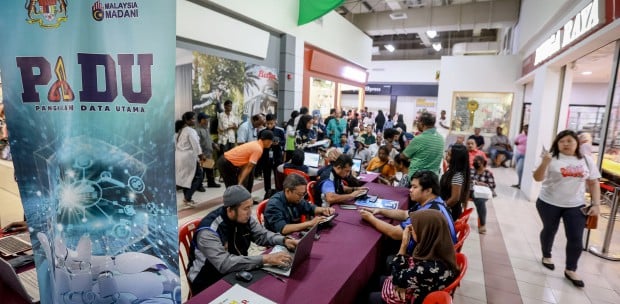KUALA LUMPUR: Lawyers for Liberty (LFL) has expressed strong condemnation of Economy Minister Rafizi Ramli's decision not to suspend the Central Database Hub (Padu) while awaiting amendments to the Personal Data Protection Act (PDPA) 2010.
Its director, Zaid Malek, criticised Rafizi's stance, describing it as ignorant and irresponsible, emphasising the importance of understanding the crucial role of PDPA legislation in regulating personal data.
Zaid argued that safeguarding personal data should not hinge on ad hoc and superficial regulations from individual government agencies, as Rafizi suggested.
"This is a reckless suggestion. Such regulations, even where they exist, do not provide the adequate and comprehensive protection the PDPA Act provides.
"The PDPA protects data according to carefully laid out principles, including the disclosure principle, the security principle, the retention principle and the data integrity principle," Zaid said in a statement today.
He highlighted Rafizi's suggestion that regulations from government agencies are enough to prevent the abuse and misuse of the public's personal data.
"The economy minister failed to give one example of any such regulation. Is he speaking of the Official Secrets Act (OSA) 1972, which is totally unsuited for this purpose?" Zaid questioned.
He emphasised the global trend of subjecting government data to PDPA-type regulations.
On this note, he found Rafizi's assertion that it is impossible or impractical for government data to be governed by PDPA legislation nonsensical.
Zaid also highlighted that Malaysia and Singapore are among a handful of countries exempting government data from a PDPA legislative regime.
However, he pointed out that other nations recognise the importance of extending data protection measures to government information.
He also warned that exempting government data from a PDPA legislative requirement would impact trade and business with countries enforcing stricter personal data protection regimes.
"Rafizi's claim that there's a difference between PDPA and government data reflects a serious lack of understanding and logic.
"The nature and value of personal data are the same, irrespective of whether private businesses or the government uses them, and they must be equally protected, whether in the hands of the government or the private sector.
"In the public interest, we strongly reiterate and urge the government to suspend Padu immediately pending amendment of the PDPA 2010," he stated.
Yesterday, Rafizi reaffirmed that Padu operates independently of the PDPA.
Reiterating this stance, Rafizi underscored that data within government agencies is safeguarded by their respective acts and dismissed suggestions to suspend the system until comprehensive protection measures are in place.
He said this following LFL's claim that government exemption from PDPA liability could disadvantage the public, exposing them to potential loss and harm in the event of data security issues.
While acknowledging the PDPA's role in protecting public data, Rafizi pointed out loopholes in the law that could impact Padu's functionality.





